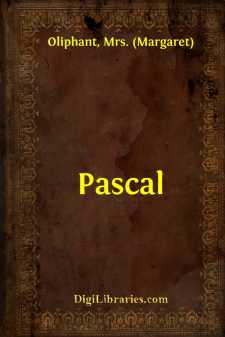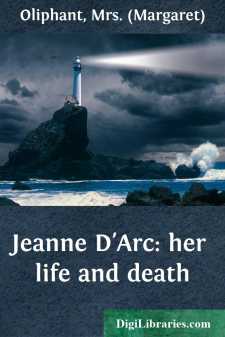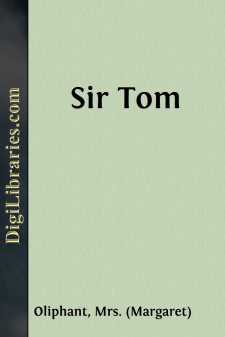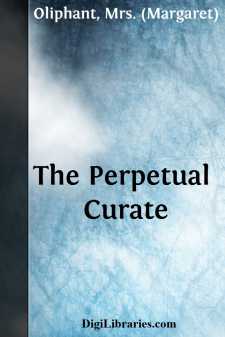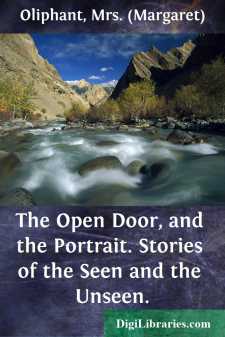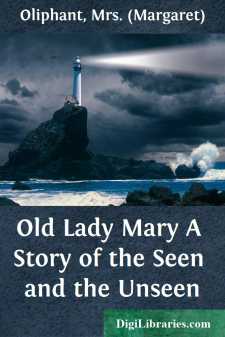Categories
- Antiques & Collectibles 13
- Architecture 36
- Art 48
- Bibles 22
- Biography & Autobiography 813
- Body, Mind & Spirit 142
- Business & Economics 28
- Children's Books 17
- Children's Fiction 14
- Computers 4
- Cooking 94
- Crafts & Hobbies 4
- Drama 346
- Education 46
- Family & Relationships 57
- Fiction 11829
- Games 19
- Gardening 17
- Health & Fitness 34
- History 1377
- House & Home 1
- Humor 147
- Juvenile Fiction 1873
- Juvenile Nonfiction 202
- Language Arts & Disciplines 88
- Law 16
- Literary Collections 686
- Literary Criticism 179
- Mathematics 13
- Medical 41
- Music 40
- Nature 179
- Non-Classifiable 1768
- Performing Arts 7
- Periodicals 1453
- Philosophy 64
- Photography 2
- Poetry 896
- Political Science 203
- Psychology 42
- Reference 154
- Religion 513
- Science 126
- Self-Help 84
- Social Science 81
- Sports & Recreation 34
- Study Aids 3
- Technology & Engineering 59
- Transportation 23
- Travel 463
- True Crime 29
Mrs. (Margaret) Oliphant
Mrs. Margaret Oliphant (1828–1897) was a prolific Scottish novelist and historical writer, known for her insightful portrayals of domestic life and society. She authored over 100 works, including novels, biographies, and histories, with notable series like the Chronicles of Carlingford. Despite facing personal hardships, including the loss of her husband and several children, Oliphant's writing career flourished, leaving a lasting impact on Victorian literature.
Author's Books:
Sort by:
INTRODUCTION. There are few names which have become more classical in modern literature than that of Blaise Pascal. There is hardly any name more famous at once in literature, science, and religion. Cut off at the early age of thirty-nine—the fatal age of genius—he had long before attained pre-eminent distinction as a geometer and discoverer in physical science; while the rumour of his genius...
more...
CHAPTER I — FRANCE IN THE FIFTEENTH CENTURY. 1412-1423. It is no small effort for the mind, even of the most well-informed, how much more of those whose exact knowledge is not great (which is the case with most readers, and alas! with most writers also), to transport itself out of this nineteenth century which we know so thoroughly, and which has trained us in all our present habits and modes of...
more...
It is natural to suppose that the arrival of the new Rector was a rather exciting event for Carlingford. It is a considerable town, it is true, nowadays, but then there are no alien activities to disturb the place—no manufactures, and not much trade. And there is a very respectable amount of very good society at Carlingford. To begin with, it is a pretty place—mild, sheltered, not far from town;...
more...
HOW SIR TOM BECAME A GREAT PERSONAGE. Sir Thomas Randolph had lived a somewhat stormy life during the earliest half of his career. He had gone through what the French called a jeunesse orageuse; nothing very bad had ever been laid to his charge; but he had been adventurous, unsettled, a roamer about the world even after the period at which youthful extravagances cease. Nobody ever knew when or where he...
more...
Young Dr Rider lived in the new quarter of Carlingford: had he aimed at a reputation in society, he could not possibly have done a more foolish thing; but such was not his leading motive. The young man, being but young, aimed at a practice. He was not particular in the mean time as to the streets in which his patients dwelt. A new house, gazing with all its windows over a brick-field, was as...
more...
Carlingford is, as is well known, essentially a quiet place. There is no trade in the town, properly so called. To be sure, there are two or three small counting-houses at the other end of George Street, in that ambitious pile called Gresham Chambers; but the owners of these places of business live, as a general rule, in villas, either detached or semi-detached, in the North-end, the new quarter,...
more...
CHAPTER I. THE PASTOR'S PROGRESS. Miss Phœbe Tozer, the only daughter of the chief deacon and leading member of the Dissenting connection in Carlingford, married, shortly after his appointment to the charge of Salem Chapel, in that town, the Reverend Mr. Beecham, one of the most rising young men in the denomination. The marriage was in many ways satisfactory to the young lady's family, for...
more...
MARGARET OF SCOTLAND, ATHELING—QUEEN AND SAINT It is strange yet scarcely difficult to the imagination to realise the first embodiment of what is now Edinburgh in the far distance of the early ages. Neither Pict nor Scot has left any record of what was going on so far south in the days when the king's daughters, primitive princesses with their rude surroundings, were placed for safety in the...
more...
I THE OPEN DOOR. I took the house of Brentwood on my return from India in 18вÐâ, for the temporary accommodation of my family, until I could find a permanent home for them. It had many advantages which made it peculiarly appropriate. It was within reach of Edinburgh; and my boy Roland, whose education had been considerably neglected, could go in and out to school; which was thought to be...
more...
I She was very old, and therefore it was very hard for her to make up her mind to die. I am aware that this is not at all the general view, but that it is believed, as old age must be near death, that it prepares the soul for that inevitable event. It is not so, however, in many cases. In youth we are still so near the unseen out of which we came, that death is rather pathetic than...
more...


